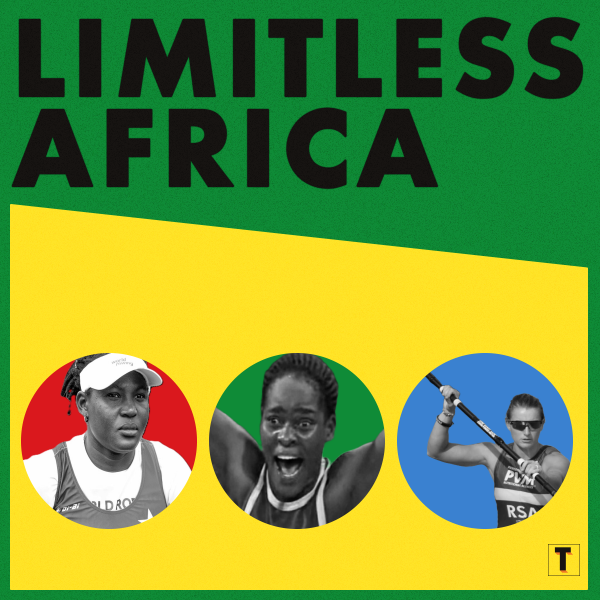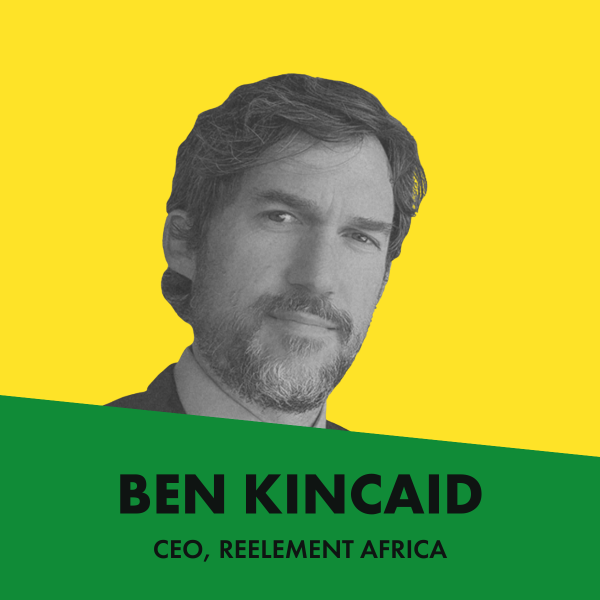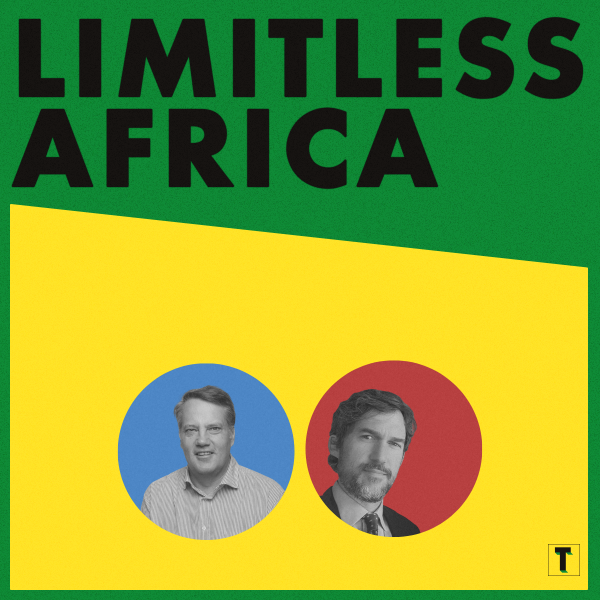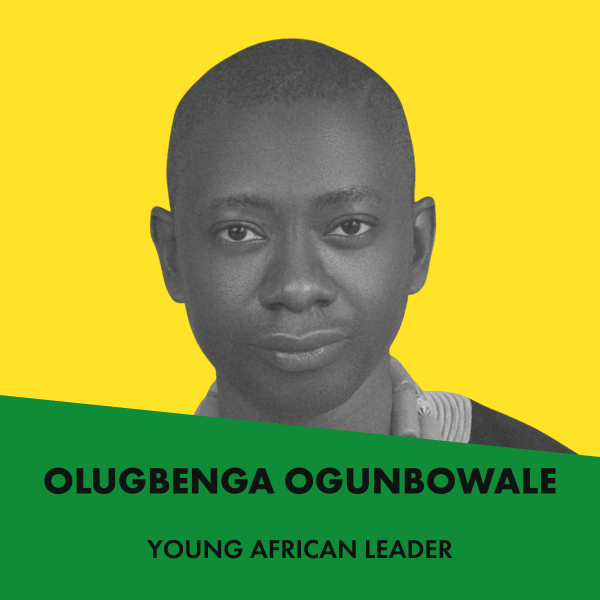Can sport change women's lives?
With guests Akoko Komlanvi, Alcinda Helena Panguana, Esti Olivier

Episode notes
The Olympians
Transcript
This week we’re talking Olympics!
“I decided to go far in sport. And that means I am faced with insults and obstacles.”
“I was definitely surrounded but not to congratulate me. They were trying to get me in the ambulance”
“My first appearance at the Olympic Games was in Tokyo, 2020, I had Covid…So I was very very weak physically, but I was strong in my soul. “
Claude:
On July 26th, the 2024 Olympics begin in Paris, France. The athletes taking part have been training every day for years. We tal...
This week we’re talking Olympics!
“I decided to go far in sport. And that means I am faced with insults and obstacles.”
“I was definitely surrounded but not to congratulate me. They were trying to get me in the ambulance”
“My first appearance at the Olympic Games was in Tokyo, 2020, I had Covid…So I was very very weak physically, but I was strong in my soul. “
Claude:
On July 26th, the 2024 Olympics begin in Paris, France. The athletes taking part have been training every day for years. We talked to three amazing female athletes about the ultimate competition. We asked them how sport has changed their lives.
Akoko Komlanvi is a multiple-time Togo rowing champion. She began rowing in 2015 and is a specialist in the Women’s Single Sculls 2000m. She’s the only woman from Togo competing this summer. She’s special – I’m togolese, I don’t think i’ve ever seen anyone row in togo. Here’s our conversation.
Akoko Komlanvi , welcome to Limitless. Your sport and training routine?
Akoko:
I started rowing in 2013, and my dream was to represent Togo one day at the Olympic Games so I never stopped training. I am still training and when I got the Olympic grant I went to Tunisia. Training goes from Monday to Saturday and then starts again on Monday. It isn’t easy!
Claude:
When did you realise you had a talent for rowing?
Akoko:
I realised I had talent after my first championships in Italy. I was good. Those were the World Championships. And I went to Tunisia two months after that.. So I had 9.17 on the clock and when I came back I had to work, correct my technique, correct any bad habits and work hard. And little by little, by listening to the advice of my coach, and then things started to change slowly.
So I worked twice as hard and I came back with 8.28 on the clock. Yes, I am very happy. That’s how I started to progress, progress until I reached this level. So, I thank my coach who helped me a lot. And the support of Daniela, who helped me a lot too. Those are the people I can’t forget.
Claude:
What challenges have you faced on the way? Mental and physical?
Akoko:
The greatest challenge is training. Training is the challenge. You have to train very day. Morning, evening, morning, evening.
Claude:
As an African woman, how has your life changed since reaching the highest level in sport?
Akoko:
As an African woman, it hasn’t been easy and it isn’t easy to be sporty because as you know, in Africa, people expect you to have a family. So my younger sisters and brothers are already married and have children. I decided to go far in sport. And that means I am faced with insults and obstacles.
Claude:
It’s not often that we see a Togolese citizen represent us at the Olympic Games. WHat event really inspired you in your career until now?
Akoko:
The event that really marked me, well that was qualifying for the Olympics Games. It was not easy. As you know, all the African countries were there. I was determined, I fought for myself. I had to work hard for this. And when all was said and done, I was among five rowers who will represent Africa at the Olympics Games.
Claude:
And is there someone on your journey who made you dream big?
Akoko:
Yes, Claire Aivo, my compatriot, she inspired me a lot. So Claire Aivo.
Claude:
She’s an inspiration for the whole country – we were so proud of her! She rowed in Rio de Janeiro in 2016 and then she came back in 2020. It was important for us to see that a woman could represent Togo at rowing at that level.
But I did not know it was her that inspired you. And how do you see your role in promoting the sport and developing it in Togo?
Akoko:
So after the Olympic games, and when I come back to Togo, I am going to do all that I can to raise awareness among young women to tell them that today, anything is possible. Everyone is capable. And there is no doubt: women are equal to men and can do anything a man can do.
I want to raise awareness among young women, I want to work hard with them to show them that with hard work to improve their mental performance and their courage they can reach the right level.
Claude:
Esti Olivier is a South African kayaking sprint athlete who qualified – for the first time ever – for the Olympics; she’ll be competing in two canoe events. In spite of serious Heart Problems, she is heading for Paris this summer. Our correspondent, Esther Appiah-Fei spoke to her.
Esther:
So can you describe your training routine leading up to the Olympics and how it has evolved from national to international competitions?
Esti:
I think my training routine kind of stays the same because the focus is always on international performance. So regardless of whether I’m competing at a provincial or national level, you know the plan is set out throughout the year. Obviously, you can’t be at your best for every single event, so you focus on the main ones, which this year was the national championships, which was our um Olympic selection event, and then now the Olympics.
Esther:
Yes, it’s all about Paris. um Can you also describe the feeling um you had when you realized you had qualified for the Olympics for the first time? How was the feeling?
Esti:
It was quite a dramatic end to my qualifying process. So i was I was struggling with some heart difficulties at the time so technically I wasn’t allowed to to take my heart rate over 130 bpn which is quite low but I had to do the race otherwise there would be no Olympics so I raced in a not so ideal situation still on medication so on. And it ended up being a three round shootout, which the first round we won and the second round was won by the challenging crew. And then the third race I opted to not drink my medication the morning of in order to not have my heart rate restricted. The race went really well and the boat went really well and about 50 meters before the finish line I started blacking out and I missed a stroke and then my partner missed a stroke and I missed another stroke and obviously we lost a lot of boat speed and the challenging crew is coming from behind and I was just trying to keep moving so that we can just cross the line and as we crossed the line I passed out completely and we we fell out the boat and it was a whole dramatic thing and my partner had to keep me up out of the water and signal for the lifeguards and they all thought we were celebrating and embracing and she was like, you need to come, we’re not celebrating, like you need to come help.
It wasn’t the way I imagined it. It wasn’t exactly the big celebration and everyone surrounds you and hugs and blah blah. It was none of that. I was definitely surrounded but not to congratulate me. They were trying to get me in the ambulance. And I knew I was fine. like ah I knew what was happening and I would be OK. But yes obviously, I think everyone else got a bit of a fright. and
It didn’t really sink in for a long time after that, we had qualified. When when they did the official announcement just a few weeks back with our Olympic committee, it was the first time that I really kind of felt it, you know, like, wow, this is happening And it’s not it’s not over yet. I haven’t lined up. Anything can still happen, which, obviously, like touch wood, we don’t want that. But I think it will truly only really sink in the day that I line up for the first race at the Games, that I am now officially an Olympian. And I think I’ll savour that moment.
Esther:
So can you tell us who or what has been your greatest source of inspiration in your canoeing career?
Esti:
I think i’ve had a I’ve had a few people that I’ve looked up to um throughou throughout my career. ah I don’t think I’ve ever had like a set role model or or anything, but I’ve always kind of tried to take something from everyone that I’ve trained with that that have achieved. When I was younger, I ah trained with the the squad, the national squad that was training for the Beijing Games. And that was quite a strong group of women and was five women at that time training together and pushing each other. I was like 14 or something in the midst of of these amazing women. um And from them, I definitely like saw what it would take to be the best.
And then you know I just take a lot of advice from my dad. He was a top triathlete back in his day and he also trained full-time, worked full-time, built his house, raised his kids, all of this at the same time. So just another work ethic just to show like you know You can do way more than you think you can at once. If you really want it, you’ll do whatever it takes. And that has been my situation for a long time as well, having to train full time and work full time. And constantly balancing training and the financial aspects of the sports along with just surviving. So there’s been a lot of influences in my life that have shown me that you’re capable of more than what you think, honestly.
Esther:
Wow. You truly are capable of more than what you think, seriously.
Claude:
Alcinda Helena Panguana is a boxer from Mozambique. She was a silver medallist at the Boxing World Championship Amador in 2022. In 2021, she made it to the quarter finals at the Tokyo Olympics. She spoke to our journalist, Jerry Muchanga.
Jerry:
Sport can change women’s lives. Tell us about the preparation for the Olympic Games.
Alcinda:
Sport can change a woman’s life, not just a woman’s, but an athlete’s in general. Because from the moment you take part in sport, you get many opportunities. First of all, you improve your mental health and you improve your physical health. I’ll give you a concrete example: Rady Gramane took up boxing because she was overweight. She wanted to lose weight, but look how far that obesity has taken her! Today she’s a bronze medalist, the third best boxer in the world and that’s no small feat! Look how far being overweight has taken her!
Thanks to sport, I can study today, without worrying who’s going to pay for my college or who’s going to pay for my expenses. Thanks to sport, my health now is impeccable. Thanks to sport, I have respect from people. They say: isn’t she’s nice, they say hello, they sit down and talk to me, and then they realize that I box. But I’m not a “thug”. That’s how, if I can put it this way, that’s how people see us boxers, so they say you’re not “thug”, you’re a well-mannered girl and on top of that you like to smile and joke. I’m the Alcinda that I am. They say you shouldn’t judge a book by its cover.
Jerry:
Let’s talk a bit about the Olympic Games
Alcinda:
My first appearance at the Olympic Games was in Tokyo, 2020, I had Covid, I had to stay in quarantine. We had to wait for approval to leave, and on the eighth day I had to leave for Tokyo. So I was very very weak physically, but I was strong in my soul. I wanted to see what the Olympic Games were like, I wanted to be in the middle of all those athletes above all … because all the amazing athletes were in Tokyo, people in the NBA who I’d seen on TV. That’s where I wanted to be because I deserved that title; I qualified and I had to be there.… and I participated, I participated in the best way! Yes, the first fight I had, I didn’t even finish it. I knocked the Kenyan out, and I was also like wow, I’m all weak, but I managed to knock someone out!
Jerry:
Can sport change the lives of women?
Alcinda:
I think so, my life has changed so much! I’m no longer the Alcinda of yesterday, today I have a different outlook on life and that’s thanks to sport. Taking part in the Olympic Games did have an influence on my life because it was after the Olympic Games that I began to see myself as an athlete and look like one too.
Jerry:
Do you have advice for young women who play sport?
Alcinda:
They must be focused, determined and have faith.
Claude:
These women are role models – for their talent, stamina and self-belief. They’re breaking records and smashing stereotypes. We’re behind them and wish them every success in Paris.
Listen next
“Africa has an opportunity over the next generation to rise as an industrial superpower.”
With guests: Ben Kincaid
LISTEN NOW 33 mins
The next generation of mines bringing value to Africa
With guests: Ben Kincaid, Derrick Roper, Mzwaa
LISTEN NOW 15 min
"If there is something that Africa can learn from America, it's that abundance mindset."
With guests: Olugbenga Ogunbowale
LISTEN NOW 33 mins








